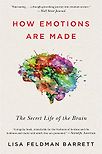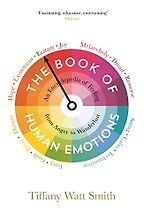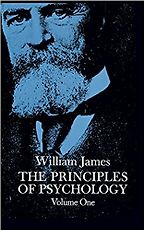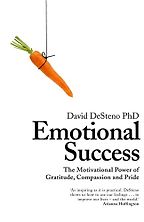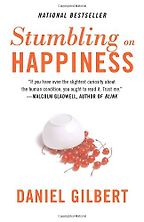Your book, How Emotions Are Made, begins by asserting that emotions are not what we typically think they are. Might you explain what you mean by that?
Sure. The reigning ‘common sense’ belief, which has also been the scientific belief for a long time, is that emotions are reflexes: our brains are born prewired with emotion circuits. Something triggers your fear circuit, say, like seeing a snake, and you react. The neurons fire, and then you have a specific change in your body: your heart races, you have a feeling of being scared, you make a facial expression that communicates that feeling like a wide-eyed gasping face, and then you freeze or run away.
The assumption is that everybody in the world makes these expressions, and everyone can recognize them. You can look at a gasping face and know that someone else is fearful. A scowl tells you they’re angry. A smile tells you they’re happy. And so on.
So the idea has been, until relatively recently, that there are ‘core’ emotions universal across all people in all cultures?
Correct, the assumption is that the human brain comes prewired with circuits for anger, sadness, fear, disgust, happiness, surprise, and sometimes scientists will include contempt. Then scientists debate about other emotion categories that might be universal, trying to create a catalogue.
Right. But what you have actually been finding through your research is that this is not the case.
There are decades and decades of research showing that we aren’t born with emotions that are built into our brains. Instead our brains build emotions as we need them in a way that’s very specific to the situation. In fear, your heart rate might go up, or it might go down. You might widen your eyes and gasp, but you also might smile or scowl. You might raise your eyebrows and widen your eyes; you might narrow your eyes in order to improve the acuity of your vision. You might run, but you might also attack, in fact you might stay very still, or you could laugh in the face of fear. What we find is that an emotion like fear isn’t a thing with a single physical fingerprint that is the same for everyone in the world. Instead, variation is the norm. In fact, even for you, fear has a category of instances that are variable. What fear looks like, feels like and how it is caused in your brain differs, depending on the situation. Fear is not universal. No emotion is universal, meaning some cultures have anger, sadness, fear, disgust, happiness and so on, and some cultures don’t.
For example, some cultures have a concept of sadness, but it means something different than it does in English. Some cultures have more than one concept for sadness. Some cultures have other emotion categories that we don’t have an English.
This reminds me of the debate over colour perception. The key question there is: if a culture does not have a name for a colour, do they perceive it in the same way? So, if we don’t have a name for an emotion, does that affect the way we emote?
Absolutely. You’re exactly right, it is exactly the same debate.
Every human – barring illness, right – we’re talking about neurotypical brains – comes equipped to have their heart rate go up or down, to be able to stand still and freeze or to run. To be able to scowl, and so on. But physical changes like that, in and of themselves, have no emotional meaning. Something has to make them meaningful. How we make physical changes in the body meaningful is by using emotion knowledge that we learn as infants and young children, which is wired into our brains as our brains finish developing in childhood. So, if you learn a concept for an emotion, like say sadness, because your culture has a word for sadness, then your brain is equipped to easily make sadness out of physical changes in your body.
Get the weekly Five Books newsletter
But it’s not the case that you can’t make an emotion if you don’t have a word for it. Our brains make concepts as we need them, using past experiences. Your brain can make a concept easily if you have a word for it, but it can also make one, on the fly, without a word. It just takes a bit more effort. Your brain makes concepts, on the fly, as you need them, by using what is called ‘conceptual combination,’ which means that your brain can take bits and pieces of other knowledge, of other emotion concepts that you know, and pieces together a novel instance of something that you’ve never felt before. But it’s really effortful, it’s hard to do. It takes a lot of attention on your part, but you can do it.
For example, let’s say I mention, “I had pizza yesterday for dinner.” If I just say the word ‘pizza,’ I’m feeling a bunch of things. I’m tasting things, I’m seeing things in my mind’s eye, and when I say the word ‘pizza,’ the word conjures some of those features in your mind too. So we can communicate easily. I have some features in my mind, I say a word, and then your brain conjures some of those features. Very efficient. Similarly, we both speak English, so if I say I’m ‘sad,’ – if I say, ‘I was really sad yesterday when a friend of mine told me he was moving away’ – that word in that context allows your brain to conjure a bunch of features in your mind that might also be in mine. It’s like a guess. You’re guessing at how I’m feeling. Your guess might be not identical, but if it’s pretty close, then we are communicating.
Now if I said to you, “Yesterday, I had a very strong feeling of ‘gigil’” What does that mean to you?
Not a lot.
It wouldn’t, unless you speak Tagalog, or you’ve read my book. But let me describe it to you in a way that will let your brain do some conceptual combination: “Gigil is an emotion where you’re faced with something that’s so adorable you have the urge to just squeeze it. Like the urge to squeeze a baby’s cheeks or hug something like a stuffed animal tight, because it’s so cute.”
Now, look at the number of words that I had to use to make you understand how I feel. I had to list the features of my experience one by one. Since you didn’t have the word to automatically conjure those features, it cost your brain more effort to actually make the concept that was needed to perceive and understand my emotion.
It’s not impossible to experience an emotion without a word for that emotion concept, but it’s much harder. This is probably one reason why people in different cultures misunderstand one another. Words and concepts do play an important role in your ability to make emotion. They are key ingredients.
Talking of naming emotions, perhaps that brings us to your first book choice: The Book of Human Emotions. It gathers 154 words from around the world for how we feel, including all sorts of interesting cases. Like the Russian ‘toska,’ which Nabokov defined as “a longing with nothing to long for.” What does this tell us?
This is a fantastic book by Tiffany Watt Smith. Some of these emotion concepts – and therefore these emotion categories – exist in modern Western culture today, but don’t mean the same thing as they did in the past. Some of the words are for concepts that exist in other cultures, but are not translatable into English with a single word, so it requires conceptual combination – your brain has to combine the concepts that you know, so that you can understand these concepts in other cultures.
The book is chock full of fantastic examples showing that emotions are not universal, and how they’re not even static historically in time. This is important to understand, because the more emotions you have in your vocabulary that you can make, the more resilient and emotionally intelligent you’ll be, and the better able you’ll be to communicate across cultures and even across time – for example, when reading a novel from the 19th century. It’s just a great example of variation in emotion categories and concepts that runs against the common sense belief, the classical belief, that we only have a handful of very basic universal emotions.
If having a word or a concept for an emotion makes it easier to discuss, and easier to recognise in yourself, does this give us some insight into why therapy – the ‘talking cure’ – should work?
Oh absolutely. Partly what you’re doing when you go to a therapist – I used to be a therapist a long time ago – is that you are relearning how to make sense of your physical sensations. That might mean learning new emotion concepts, expanding your emotion vocabulary, so that you can be more resilient, and more I think it’s important to understand that knowing more emotion concepts, and expanding your emotion vocabulary, doesn’t just improve your ability to communicate about emotion, it actually improves your ability to make precise emotions, and this has direct health benefits.
We’ve published a number of studies and recently a review paper, showing that knowing more emotion concepts, having a broader emotional vocabulary – what we call emotional granularity – actually has beneficial health and mental health outcomes, even when you’re being more granular about negative emotion. In fact, there’s research coming out of the emotional intelligence lab from Yale University, showing that when you expand children’s emotion vocabulary you don’t just improve their emotional lives – their ability to regulate negative emotion – you also improve their social regulation, their behaviour with their peers, and even in certain cases their academic performance. I describe these findings in my book and explain the neuroscience behind them.
I once spent a happy afternoon looking through a Scottish Gaelic dictionary, and found 49 different words expressing some variant upon ‘sadness.’ I suppose Highlanders must have been well versed in the art of melancholy.
One of my very favourite things in Tiffany Watt Smith’s book is her discussion of how 16th-century English self-help books talked of sadness as a way to optimise resilience and health. I just find particularly amusing given what I call the ‘tyranny of happiness’ in Western culture right now. People believe that all great things in life are achieved, all meaning in life is achieved, through happiness, but at a different time in our history, sadness was thought to be a way of cultivating a meaningful life, and in a way that impacted your health.
“My Russian friend said that when she came to the United States she’d never smiled so much in her life”
I have a Russian friend who said that when she came to the United States she’d never smiled so much in her entire life. She said her cheeks hurt for a year! Her Russian grandmother has this view of life which is: no sensible person would be happy all the time, or even try to be happy all the time. I just thought that was fantastic.
I’m very intrigued by your next choice, Middlesex, by Jeffrey Eugenides. This is a Pulitzer Prize-winning novel, a coming-of-age story with an intersex protagonist. What made you choose this book?
A number of reasons. To start with, I just really love the story. And it also illustrates two really good insights into emotions as they really are, and how emotions are really made. First of all: Jeffrey presents some descriptions of emotion concepts that have no single word associated with them. For example, “the hatred of mirrors that begins in middle age.” I know that emotion! I experienced that emotion this morning. “The disappointment of sleeping with one’s fantasy, and having it not live up to your imagination.” “The excitement of getting a room with a minibar” – although I don’t particularly have that emotion, instead I have the excitement of getting a room with pieces of chocolate in it.
Or a room with a bath rather than a shower, yeah.
Exactly true, a great big tub that you can really soak in. So, he’s talking about the variation in emotional life that is the central theme of my book.
I also talk about the emotion of ‘chiplessness,’ which in our house is the feeling of regret and desire, and also relief, of getting to the bottom of a bag of potato chips and realising there are no more. I don’t know about you, but I love potato chips. When I get to the end of a bag of potato chips, I usually feel relieved, but also sad, and a little bit guilty. I have to explain it to you with multiple words, so you understand all the features of my experience. But to my husband, or my daughter, I can just say, “I’m feeling chiplessness.” We use that emotion concept even at times when we’re not eating chips.
“By having an intersex protagonist, Eugenides takes on the assumption that categories cut nature at its joints”
My daughter came up with the concept of the ‘emotional flu,’ that yucky feeling that you have when you don’t actually have a virus and there’s nothing actually wrong in your life, but – maybe because you just didn’t sleep enough, or maybe you’re dehydrated, or maybe you just had a stressful test – you just feel wretched.
Interesting. I have read that Tahitian culture does not have a word for ‘sadness,’ but it does having a word meaning something like: ‘the fatigue of when you have the flu.’ So there are antecedents!
Exactly. So in Middlesex, Eugenides does a really nice job of illustrating this complexity of emotional life, the variation of emotional life that doesn’t necessarily fall into neat categories, neat parcels of ‘anger,’ ‘sadness,’ ‘fear,’ ‘disgust,’ and so on, and that’s the first reason I like the book.
The second reason that I really like the book is that it takes on an assumption that is pervasive in the science of emotion, and in science generally – certain sciences more than others. By having an intersex protagonist, Eugenides takes on the assumption that categories cut nature at its joints, that nature has joints to be cut. This needs a little bit of explanation.
A category is basically a group of objects, or items, or people, or events, a group of things, that are similar in some way. Many of the things that we put into the same category, we assume are similar in a physical way, that the similarities exist in the physical world. For example, if you believe that a scowl is the expression of anger, not just facial movements that people sometimes make when expressing anger, but also sometimes when expressing confusion or an unpleasant taste, when then you’d be assuming that every time someone scowls, they’re angry, and anytime someone is angry, they should scowl, because all the instances of anger are similar in their scowling, okay? This means you are assuming that all instances of anger are physically similar in the facial movements people use to express anger.
“Essentialism assumes that similarities are in the world, rather than in your head”
There are a number of scientific approaches to emotion that assume an emotion category – all the instances of anger – are physically similar in some way. In fact tech companies are spending right now millions of dollars to develop emotion reading technologies based on this belief. This assumption is what philosophers call essentialism, the belief that a group of things that you’re treating as similar for some purpose are actually physically similar. Essentialism assumes that similarities are in the world, rather than in your head. For example, if we said: “Well, maybe there is one set of neurons that create anger and another set of neurons that create fear,” that would be an example of essentialism. If we believe that people scowl when they’re angry and only when they’re angry, but never when they’re disgusted, and we assume that people wrinkle their noses in disgust and only in disgust, but never when they’re angry, then we’d be essentializing. If we said: “ there must be a set of chemicals that allow us to feel anger and only anger, or a set of genes that allow us to feel anger and only anger….” these are other examples of essentialism. There’s a fantastic book by Richard Lewontin, called The Triple Helix, where he takes on this misunderstanding of genetics as essential causes.
Five Books interviews are expensive to produce. If you're enjoying this interview, please support us by donating a small amount.
People make the mistake of essentialism when they misunderstand Darwin’s ideas about natural selection, or they make mistakes about understanding evolution or genetics more generally. This is discussed in a terrific book by Ernst Mayr, called What Makes Biology Unique? If you assume that a single set of genes are like little essences that cause the same characteristic in everybody, like brown hair, and that everyone who has brown hair has the same set of genes, that’s essentialism. And it’s not true. Most characteristics (not all, but most) are created by combinations of different genes – so more than one set of features can create a characteristic. This was Darwin’s great insight: a biological category is highly variable in its features. Natural selection works only because there is this variation within a category. A biological category like sex works the same way. People assume that there is a single set of characteristics that make you male or female, and that the boundary between male and female is firm in nature – that all the men are similar in some physical ways, and that men are never similar to women in those ways.
But here’s the cool thing: there’s no single set of features that every woman shares with every other woman and that some men do not share. There may be no firm boundary between male and female, it’s more like a fuzzy graded boundary, and there are some number of people who have some characteristics of being male and some of being female, or some characteristics that are sort of half way between what we conventionally understand as male and female. Depending on which characteristics you focus on, between .05% and 1.7% of the world population who are intersex.
“Between .05% and 1.7% of the world population are intersex”
That’s actually a lot of people who don’t fit firmly into one category or another. But our culture believes so much in the essential nature of being male and female that physicians physically alter with surgery intersex babies so that they fit into one category or the other. It causes tremendous health and mental health related challenges later in life, so there’s a tremendous amount of suffering that goes along with our forcing people into male and female categories with firm boundaries, as Middlesex illustrates in narrative form. There’s a book by Alice Dreger, Galileo’s Middle Finger, where she takes on other examples of essentialism, as well as her book on Hermaphrodites.
This has a parallel to the science of emotion, because many scientists hold the common sense view that emotion categories have essential features with firm boundaries in nature. They believe in the existence of a handful of categories that are endowed by genetics, so that the human brain contains a single circuit for anger, fear, sadness, and so on, that all humans have them (and maybe even some other animals have them too) and that anger, or sadness, or fear, when it’s triggered, looks the same and feels the same in all people, and in even in some non-human animals. That’s a very essentialised view of emotion, and there are decades of scientific evidence showing it’s wrong. I cover some of this evidence in my book.
Your third book choice is William James’s The Principles of Psychology. Was he a proponent of the classical view of emotion?
William James wrote a wonderful summary of what was known and what questions were being asked at the dawn of psychology as a science in the 19th century. James is widely mis-cited and misunderstood as someone who advocated for a classical, common sense view of emotion. The irony is that he advocated for just the opposite.
In the 19th century, psychology as a science was born when people started to use the methods of neurology and physiology to search for the physical basis of mental categories that came from mental philosophy. William James is sometimes considered the father of American psychology, primarily because he wrote extremely well, and he captured ideas that were in the zeitgeist at the time. He was just a really thoughtful, interesting thinker.
James wrote that emotions occur when people perceive and make sense of the physical changes in their bodies. He wrote that each emotion has its own physical change. When James referred to “an emotion,” he was talking about an instance of emotion – one instance of fear has a different physical basis than another instance of fear. He was referring to Darwin’s notion of variation within a category. But for over a century, when people have read James, they misunderstood him, and assumed by “an emotion” James meant a category of emotion. So he has been cited over and over again as saying something that is exactly the opposite of what he actually did say. I discuss this in my book.
“No actual family has 3.13 people in it last time I checked”
Basically, James was saying that an emotion category does not have a physical essence. That there is variation in different emotion categories, like “the fear of getting wet is not the same as the fear of a bear,” or “surely there is no affectation of anger in the entitative sense,” meaning in the essential sense. James said that we should find that our descriptions of an emotion like anger has not “absolute truth” – that “they only apply to the average man.” What he means by this is also what Darwin said – we have a stereotype for a category – a perfect instance of anger where a person scowls and heart rate goes up and an aggressive action is taken, and so on, but this stereotype is an abstraction. The average US middle class family has 3.13 people in it, but no actual family has 3.13 people in it last time I checked. From James: “[E]very one of us, almost, has some personal idiosyncrasy of expression, laughing or sobbing differently from his neighbor, or reddening or growing pale where others do not.”
Here James capturing beautifully the importance of variation. He also foreshadows many other insights that science has now shown to be true, like: there’s no special brain region or center for emotion. Emotions are created based on the all-purpose mechanisms that already exist in our brain. He also really takes on essentialism as a problem in psychology, in a way that’s really, really interesting.
Here’s a quote that I particularly like:
The cardinal passions of our life, anger, love, fear, hate, hope, and the most comprehensive divisions of our intellectual activity, to remember, expect, think, know, dream, with the broadest genera of aesthetic feeling, joy, sorrow, pleasure, pain, are the only facts of a subjective order which this vocabulary deigns to note by special words.
What he means by that is: we assign words to certain categories of experience, and then we essentialise those categories, and that leads us to ignore the variation within the category. It leads us to believe that there’s something indelible and biologically unchanging about those categories, that there is some boundary in nature that the word reflects, and it’s absolutely not true.
The fact that William James was saying this a 100-plus years ago is really remarkable.
William James is often cited in our interviews about the mind and the brain, especially this book and his Varieties of Religious Experience. It’s fascinating to see how his influence carries through the centuries.
Yes. I would say, though, that when I was a graduate student I used to feel like William James was a bit of a projective test. Meaning: people read into James what they want. This is what the historian Kurt Danziger, in his book Naming the Mind, calls ‘presentism,’ the idea that you look at the past through the lens of the present, and see what you’re looking for. I stumbled onto James’s passages about emotion buried in The Principles of Psychology, and it led me to do a systematic study of exactly what James did and didn’t say about emotion. About the nature of psychological categories, mental categories, and so on. James himself was pretty consistent, it’s just that people have often misinterpreted him in interesting ways that reflect their own assumptions.
Let’s move on to your fourth book. You’ve selected Emotional Success: The Power of Gratitude, Compassion and Pride by David DeSteno. The idea is that these ‘pro-social emotions,’ as he calls them, contribute to our ability to persevere, to use willpower, and therefore to success.
I should disclose that Dave DeSteno is a colleague of mine at Northeastern University. I only moved to Northeastern University about seven years ago, but Dave DeSteno has been doing this work on positive emotions – gratitude, compassion, and so on – for a number of years.
Maybe it’s just my particular background, but I was always very sceptical of the positive psychology movement, even though it includes some of my closest friends and colleagues. Maybe I’m an old curmudgeon at heart. So I have been really captivated by the persistent findings in research about the ways in which emotions like gratitude and compassion – and I would add awe – are really beneficial. I love scientific findings that cause me to question my own beliefs and values.
“If you curate your experiences, eventually your brain will automatically make those emotions with ease”
One of the arguments that I make in my book, based on my understanding of the neuroscience of how the brain is working to make emotions, is that it’s very beneficial for you to cultivate experiences right now, in the present, to seed your brain to more easily in the future make beneficial emotions, emotions that will help you in your life. Some of those will be pleasant, and some of those will be unpleasant; but the argument that I make, based on neuroscience, is that if you cultivate experiences that are unfamiliar to you, curate your experiences by putting in a little effort, eventually your brain will just automatically make those emotions with ease when you need them. Like driving.
Dave’s basic argument is that if your brain learns how to make gratitude and compassion, and you start to do it automatically, then you’re not having to employ effort, attention, or what he would call ‘cognitive strategies’ to do the right thing and get along in life. You’re wiring your brain to automatically make better decisions, with little effort, if you learn to make gratitude, compassion, and so on.
The concept of ‘positive psychology’ I usually associate with the sort of magazines I pick up in doctor’s offices. Ten ways to think yourself healthy, that sort of thing. So it’s fascinating to hear about the evidence and the theory behind it. I knew of anecdotal evidence, the thousands of people who swear by gratitude journals.
Yes. The reason why those journals work, is that you’re basically training your brain to automatically make that emotion. I explain the nuts and bolts of it in my book. Gratitude is a very powerful game changer. So is awe, the emotion of awe. Buddhist philosophy also really emphasises compassion. There is scientific evidence that these emotions really are helpful.
When I pick up a popular book on positive psychology, my first impulse is to have my eyes roll back in my head. But with Dave’s book, my reaction was that my eyes widened, and I leaned in, and I read the book very quickly with great interest. I could nitpick about some of his metaphors, like one very popular notion in our culture: that the mind is a battleground between cognition and emotion, or rationality and feeling. That’s just a fiction, it’s just a myth. Brains aren’t structured that way, they don’t work that way, despite the fact that scientists keep using it. But to me that’s a minor point in a tapestry of much more interesting and important findings. Dave’s book is full of real, scientifically backed advice that can be helpful to people.
Your final choice is another example of using scientific findings to improve our lives, and another common pick on Five Books: Stumbling on Happiness, by Daniel Gilbert.
Dan Gilbert’s book is one of the first books that appeared on happiness, more than 10 years ago. It’s received many accolades, as it should: It’s a fantastic read. It’s an easy read, so it’s deceptive in that you might begin thinking, ‘oh, this is a piece of fluff’ – but it’s not. It takes on some pretty important scientific and philosophical topics that are usually presented in a complex and difficult way. Dan’s book is one of the best popular psychology books I think that’s been written in the last decade or so.
Dan writes about scientific evidence in a very accessible way. And he’s just totally hysterical. He is a really, really funny guy, if you’ve ever seen any interviews with him – and that voice comes out in his book. At the same time, he manages to communicate these incredibly powerful and important ideas in a straightforward, understandable way.
“Juries’ decisions largely rest on whether or not the defendants express remorse in an American way”
One of the ideas in this book is that minds are predictive, not reactive. It feels to us like we just react to the things that are happening to us, but in fact our brains are constantly guessing what’s going to happen in the next moment. Dan’s book was one of the first books that really took on this idea of prediction – which is, I would say, one of the great innovations in the last decade or two of neuroscience research. The book describes prediction in very straightforward terms, and he’s not talking about the neuroscience here, he’s really just talking about psychology, just the mind. There are two other books, The Predictive Mind, and Surfing Uncertainty, which take on some of these ideas in a little bit more detail.
Dan’s book did it with respect to happiness, and one of his main points is that we believe that we understand what makes us happy, and that we make predictions about what’s going to make us happy. We usually follow those beliefs, and we’re often wrong. He points this out in really funny, poignant, and I think deep and important ways.
What are the benefits of understanding how we construct emotions? How can we apply this knowledge in a way that will improve our lives?
There’s really no aspect of your life where it isn’t relevant. It’s relevant in classrooms, in courtrooms, in boardrooms, in bedrooms, every aspect of your life. You experience emotions, you perceive emotions, this is the currency of a human life.
Say you believe that faces display emotion, and you can read emotion in someone’s facial movements – we call them expressions, right? As if something is being expressed the way that you would read words on a page. Well it turns out actually you don’t, nobody does. If that’s what you believe, though, then it can wreak havoc in your life, and it can cost people their lives.
In the book, and in my TED talk, I gave this example: to get a fair trial, a jury and a judge have to know the heart and mind of a defendant. How do you know the heart and mind of a defendant? Well, people believe it is through their facial movements. In the United States – the United States still has the death penalty in some states – juries are sometimes asked to make a decision between sentencing someone to life in prison, or to death. Their decision largely rests on whether or not the defendant express remorse in an American way, because people believe remorse is expressed universally. So someone might feel remorseful but not show it the right way and be sentenced to death. Someone might not feel remorseful but put on a good show and be sentenced to life in prison. That’s just one example of why we need a better, more scientific understanding of how emotions are made. There are many, many, many examples that I describe in my book.
Get the weekly Five Books newsletter
Another example is that anxiety has a particular expression that is distinct and unique. The consequence of that belief is that women are more likely to die from a heart attack after the age of 65 compared to men, because when they go to the hospital, physicians – and they themselves – believe they’re experiencing anxiety, and so they’re sent home instead of being given tests for an impending cardiac event. Then they have a heart attack and die. In fact, this happened to the mother of my publicist in the UK.
Wow. That’s terrible.
There are lots of examples of how using the wrong theory of emotion can be really harmful to your life, and there are many, many examples of how using the right theory as a tool can actually help you live a more meaningful life, and a healthier life, and improve the lives of your children, and your co-workers, your colleagues, and friends.
Interview by Cal Flyn, Deputy Editor
March 12, 2018
Five Books aims to keep its book recommendations and interviews up to date. If you are the interviewee and would like to update your choice of books (or even just what you say about them) please email us at [email protected]

